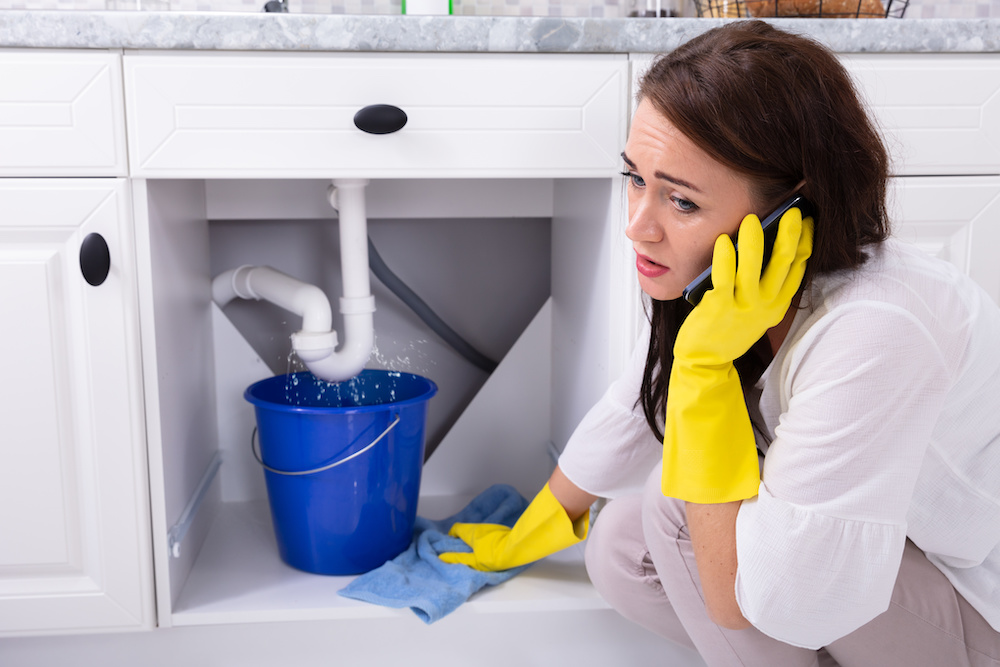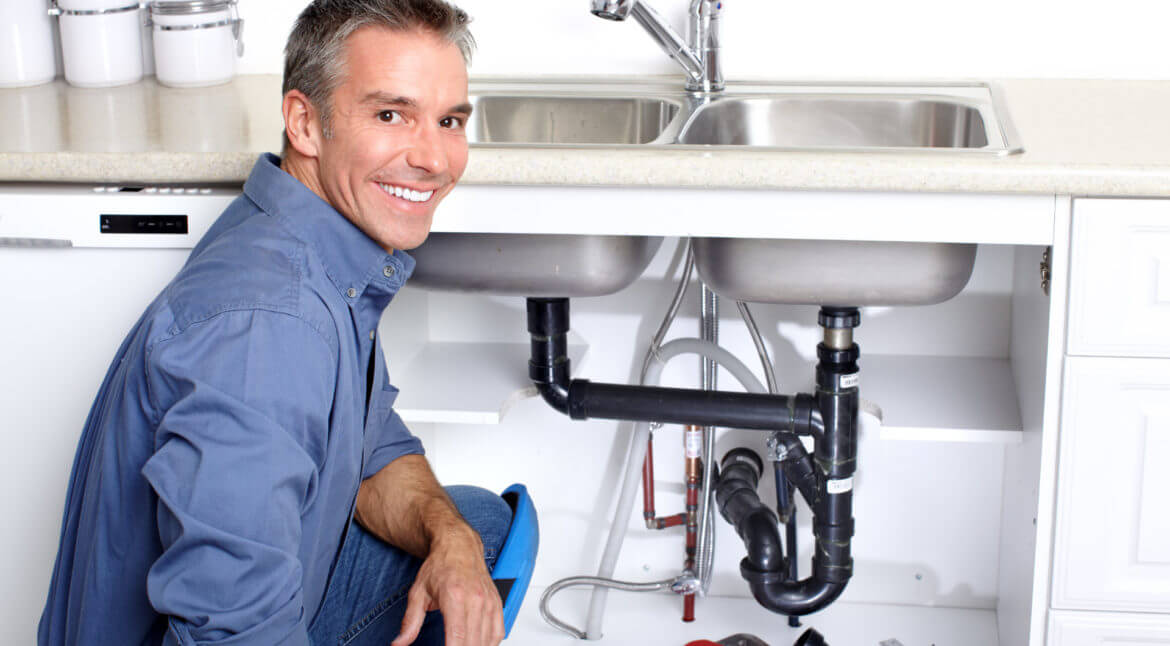Temporary Plumbing Fixes for Critical Situations: Actions to Take Until Help Arrives
Temporary Plumbing Fixes for Critical Situations: Actions to Take Until Help Arrives
Blog Article
The content following next on the subject of What to Do While Waiting for an Emergency Plumber is exceedingly motivating. Read it yourself and see what you think of it.

Plumbing emergencies can strike at any time, creating tension and possible damage to your home. Whether it's a ruptured pipeline, a stopped up drainpipe, or a leaking faucet, understanding just how to handle the situation till an expert plumber shows up can save you from more problems. This article supplies essential emergency situation plumbing tips to assist you mitigate damages and restore control throughout a plumbing situation.
Shut off the Water Supply
The very first step in any kind of plumbing emergency is to shut down the supply of water. For localized problems, such as a dripping faucet or commode, turn off the valve near the component. In the case of a significant leak or ruptured pipeline, locate your home's major water shut-off valve and turn it off immediately. Understanding the area of these valves beforehand can save useful time throughout an emergency.
Address Tiny Leaks with Short-lived Repairs
Small leakages can swiftly become considerable troubles if left unchecked. Make use of these short-term repairs until expert aid gets here:
While these solutions aren't permanent, they can assist decrease water loss and damage.
Unclog Drains Safely
A stopped up drain can be an irritating and unpleasant issue. Here's exactly how to tackle it:
If these methods do not work, prevent utilizing extreme pressure, as it may worsen the clog.
Take Care Of Overflowing Toilets
An overflowing toilet can cause immediate mayhem. Here's what you should do:
Turn off Your Water Heater
In particular emergency situations, such as a ruptured pipeline, it's smart to turn off your water heater. This avoids overheating or damages to the device when water quits moving. Shut off the power supply to the water heater (electrical or gas) and let it cool to prevent potential dangers.
Temporarily Quit a Burst Pipeline
A ruptured pipe can result in significant water damage in mins. To alleviate the issue:
Call an expert plumbing instantly to address the issue permanently.
Take Care Of Frozen Water Lines Thoroughly
In colder climates, icy pipes are a common emergency. If you believe a frozen pipe:
Stop More Damage
Taking fast activity to decrease damage can conserve you money and time in the future. Below's how:
. Have an Emergency Plumbing Set
Prepare a standard plumbing emergency set to take care of small issues efficiently. Your package needs to consist of:
Having these tools handy can make a substantial difference in your ability to manage emergencies.
Know When to Call a Professional.
While quick fixes can help temporarily, specific pipes issues need immediate expert interest. Call a plumber if:.
Immediately calling an expert guarantees the issue is resolved correctly and protects against additional problems.
Conclusion.
Pipes emergency situations can be overwhelming, but with the appropriate understanding and devices, you can handle the circumstance effectively until assistance arrives. By switching off the water system, dealing with small leaks, and using temporary repairs, you can reduce damage and maintain your home safe. Bear in mind, these ideas are short-term options; always speak with a certified plumbing to handle the origin of the issue. Preparation and fast reasoning are your finest allies in any plumbing emergency.
8 Helpful Tips for Managing Plumbing Emergencies at Home
If your plumbing system hasn’t failed once, wait for it because almost everyone has a story to tell. Sometimes, it could be simple emergencies such as a leaking pipe, a blocked cistern, or even a big burst pipe. In situations like this, you need to have some handy tips to save you some money and from possible damages.
Take care of minor issues early.
Sometimes, you could have avoided an emergency by taking proactive measures while it was still early. Some major plumbing emergencies can be a result of an ignored minor issue. We recommend that you have items like plumbing tapes and other related items. A plumbing tape can allow you to manage minor leaks before the plumber arrives.
Cut off the water supply.
This tip is essential in almost any type of leakage problem. For problems like minor leakages in the toilet or kitchen, turn off the supply that takes water to the affected pipes. If the leakage is a major pipe, you must shut off the supply valve to the entire building. This will help you avoid flooding your home and neighbors if you share a flat.
Know your plumbing system
Folks typically move into a new apartment without understanding the water supply around the building. This can prove disastrous if a water emergency arises and the plumber is far away. The previous tip will prove useless if you don’t practice this one. More importantly, know where your water shut-off valve is located – you’ll need that knowledge to prevent potential home floods.
Have some common handy tools
There are lots of plumbing emergencies that you can handle without hiring a plumber. That’s why you must keep some tools available always. Some tools that you can use to fix simple plumbing emergencies easily include plumbing tapes, screwdrivers, thread seal tapes, plungers, pliers, tape measures, and rubber gloves.
Insulate your pipes from cold
You’ll save yourself from many plumbing expenses if you protect your water pipes from the cold. This is because of the harmful effects that cold weather can have on your pipes. During winter, your pipes can burst from being overly expected to freezing temperatures. So, make sure insulators are there to keep the pipes working correctly.
Avoid practices that will clog your toilet.
Many people indulge in practices that can damage the plumbing system of the entire building. One of these is when they use their toilet to dispose-off garbage. They flush all kinds of things, such as paper towels, bandages, hairs, female sanitary products, etc., down the toilet. This will block your toilet in the long run, incurring unnecessary expenditures. Dump such waste in the trash instead.
Check your dials regularly.
Sometimes, there could be leakages in your home without noticing them in time. So, constantly monitor your water meter dial. If the dial is reading when there is nobody using water, this is an indicator that there is leaking. Check for leaks immediately. Call a plumber as soon as possible if you can’t find any.
https://www.constructionplacements.com/8-helpful-tips-for-managing-plumbing-emergencies-at-home/

I hope you liked our part about Expert Tips for Managing a Plumbing Emergency Until Help Arrives. Thanks so much for finding the time to read through our post. Appreciated our blog entry? Please share it. Help another person locate it. Thanks a lot for your time invested reading it.
Call Report this page